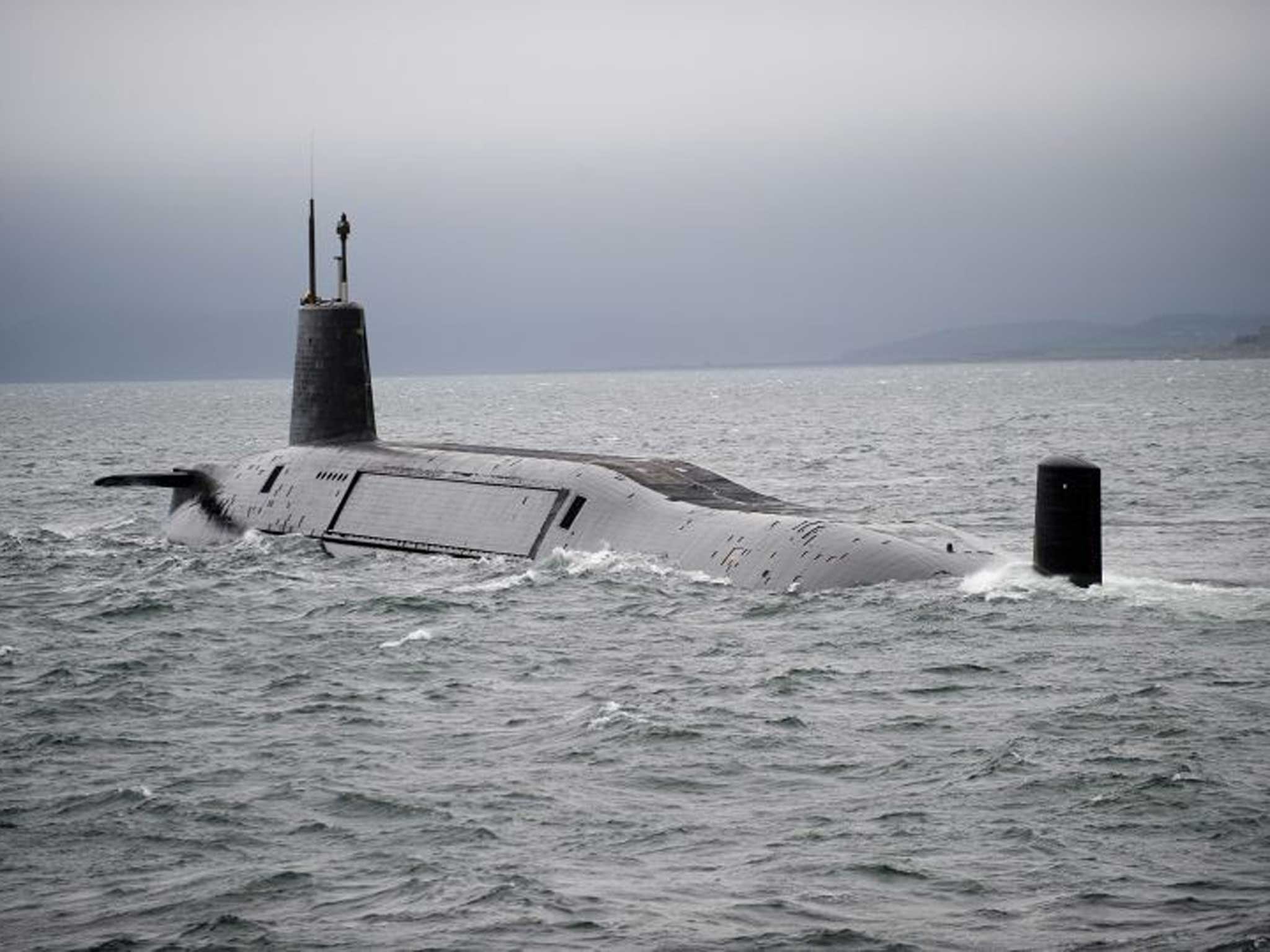Naval bases could become nuclear dumps
Fears grow in dockyard cities over removal of radioactive material from decommissioned subs

Your support helps us to tell the story
From reproductive rights to climate change to Big Tech, The Independent is on the ground when the story is developing. Whether it's investigating the financials of Elon Musk's pro-Trump PAC or producing our latest documentary, 'The A Word', which shines a light on the American women fighting for reproductive rights, we know how important it is to parse out the facts from the messaging.
At such a critical moment in US history, we need reporters on the ground. Your donation allows us to keep sending journalists to speak to both sides of the story.
The Independent is trusted by Americans across the entire political spectrum. And unlike many other quality news outlets, we choose not to lock Americans out of our reporting and analysis with paywalls. We believe quality journalism should be available to everyone, paid for by those who can afford it.
Your support makes all the difference.Fears that two major naval bases sited near large British cities could become nuclear waste storage facilities "by default" have grown after it was revealed the Ministry of Defence proposes to remove low-level radioactive waste from the UK's nuclear submarine fleet.
According to minutes of a submarine dismantling meeting, the "early removal of low-level waste" has been proposed at two major dockyards: Rosyth, in the Forth estuary, Fife, and Devonport, in Plymouth. Experts warned that removing radioactive waste would need to be explained "carefully" to ensure dismantling sites on bases near major population centres did not become waste storage areas "by default".
The first of Britain's ageing nuclear fleet of 27 submarines is due to be broken up within five years. But proposals to create a long-term geological disposal facility for their reactors will not be available until "sometime after 2040". According to minutes of the Submarine Dismantling Project Advisory Group, there is "uncertainty running to several decades" over a long-term storage solution for waste from nuclear submarines. Despite this, the MoD proposes to begin stripping out low-level waste – contaminated equipment – in the dockyards.
Radioactive waste from submarines is divided into three categories: high-level waste (HLW) from the reactor pressure vessel, intermediate level waste (ILW) that includes spent fuel, and low level waste (LLW) including contaminated equipment.
Jane Tallents, a member of the Nuclear Submarine Forum, told MoD managers that during a public consultation in 2011, residents near bases had been assured there would be no dismantling of subs without permanent storage sites being chosen, and the proposals to remove LLW "might seem like move away from that".
John Large, an independent nuclear engineer and analyst, said: "Stripping out the LLW components could compromise the final detailed strategy of decommissioning the submarines. I would not have thought it possible to separate some of the low level and intermediate level waste components. Any decommissioning activity requires that the submarine reactor compartment containment be opened so this introduces a further risk of release."
There are seven retired subs at Rosyth and eight at Devonport. The MoD proposes removing the nuclear core from one submarine based at Rosyth, which The IoS can reveal will be HMS Swiftsure, decommissioned in 1992. According to the MoD, workers carrying out the dismantling will be kept to radiation doses that "can be shown to be as low as reasonably practicable".
In February, proposals to create an underground geological storage facility in West Cumbria were overruled by local councillors. Campaigners claim that Plymouth has above-average levels of radon and tritium discharges from the dockyard.
Green MP for Brighton, Caroline Lucas, said: "As long as we cling on to the idea that we need a seaborne nuclear deterrent, we're going to have the problem of what to do with the dangerous waste it creates."
Philip Dunne, a Defence minister, said: "We recognise that radioactive waste is one of the consequences of a nuclear submarine programme. This consequence is one that we are committed to dealing with in a safe manner."
Join our commenting forum
Join thought-provoking conversations, follow other Independent readers and see their replies
Comments